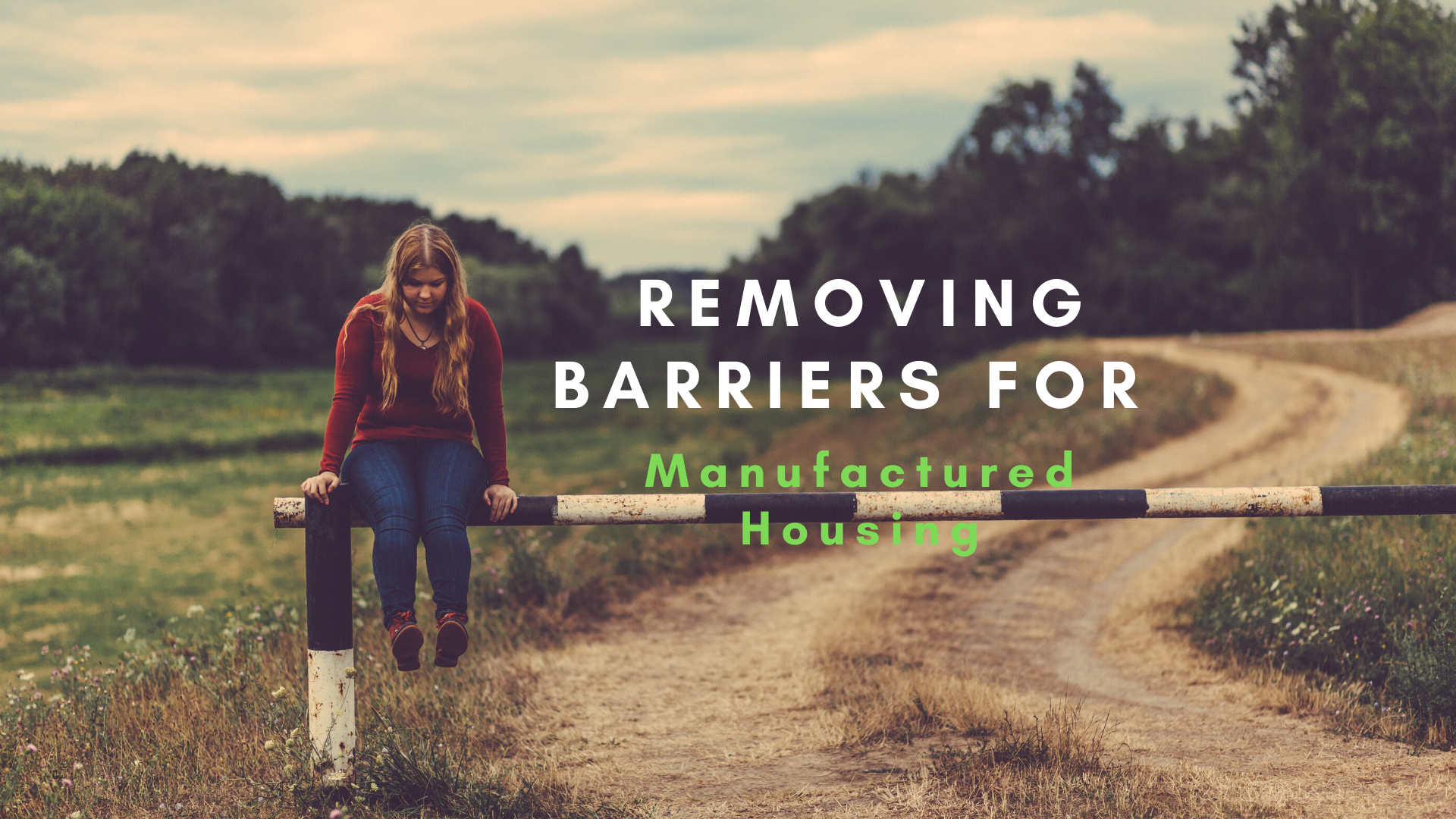Continuous Advocacy Efforts Are Removing Some of the Barriers to Manufactured Housing
April 2, 2020

Currently, the United States is facing an affordable housing shortage of approximately 7 million units. Under the circumstances, the fact that the H.R. 4351, also known as the "Yes in My Backyard" (YIMBY) Act, has recently passed the House comes as no surprise. To understand the legislative consequences of this bill and what it means for lower-income families, let's analyze the proposed amendments that will come into effect if the bill is signed into law.
Manufactured Homes Will Be Allowed in Different Residential Districts
Local zoning ordinances and land-use regulations are two important barriers to affordable housing. These ordinances and regulations have excluded manufactured homes from many communities, stifling the development of the manufactured housing sector and negatively impacting the availability of affordable housing. As these regulations have become more stringent and comprehensive year after year, fewer affordable homes have been built, leading to a continuing shortage of affordable housing, followed by a steady increase in property prices.
The good news is that the federal YIMBY Act is about to change and even eliminate some of the exclusionary zoning regulations and other regulatory barriers to affordable housing. As the new bill requires localities to identify and eliminate any discriminatory land-use regulations, manufactured homes are expected to become components of single-family as well as multi-family neighborhoods. According to the YIMBY Act, localities will need to enact high-density single- and multi-family zoning, which will promote manufactured housing production as part of the solution to the nation's housing affordability crisis.
The YIMBY Act also requires the CDBG-eligible localities that benefit from the program's funds to issue regular reports with the measures they have already taken or intend to implement in order to remove the discriminatory land-use policies that exclude manufactured homes from their communities. Recognizing the importance of CDBG funds for localities, the new bill encourages local governments to work together with affordable housing advocates and the Administration in order to address the zoning regulations that have negatively impacted the production of affordable housing.
Because the input from the localities and community residents can significantly impact affordable housing development in the form of manufactured homes, a law that urges the local municipalities to alleviate and even eliminate specific zoning ordinances will encourage the production of affordable housing. Besides removing some of the barriers to affordable housing, the new bill will increase the transparency in local zoning and land-use decisions, while bringing some relief to lower-income families that are currently burdened by high rental rates and home prices.
Additionally, the MHI has proposed a new directive that asks the HUD to require localities to include manufactured homes in their affordable housing strategies and community development plans.
The YIMBY Act Will Encourage Manufactured Housing Production
Supporting the inclusion of manufactured homes in more communities, the new bill gives advocates a strong basis for objecting to any actions that would exclude manufactured homes from specific neighborhoods. Considering that manufactured homes can also provide important cost savings, while offering the same appearance and quality as site-built housing, the implementation of the YIMBY Act will lead to a higher demand for these types of homes. This, in turn, will encourage the production of manufactured homes, which will increase the supply of affordable housing, which could pose a potential end to the current affordable housing crisis, while also potentially reducing home prices and rental rates.
Additional Bills Support Smaller Manufactured Home Loans
In addition to the YIMBY Act, the H.R. 5931 also passed in the House on March 2, 2020. As this bill requires the FHA to review its regulations and eliminate any barriers that prevent potential homebuyers from accessing smaller loans for manufactured homes under $70,000, it focuses on creating a more favorable lending climate for manufactured home lending and potential borrowers.
Affordable housing is a key topic nowadays. Not only are manufactured homes the largest single source of affordable housing in many areas across the country; including them in more communities is also an essential step to further fair housing and revitalize our neighborhoods. Any legislative initiatives that encourage localities to improve the availability, affordability, and equity in housing could potentially put an end to the affordable housing crisis, while paving the way for increased economic productivity.
